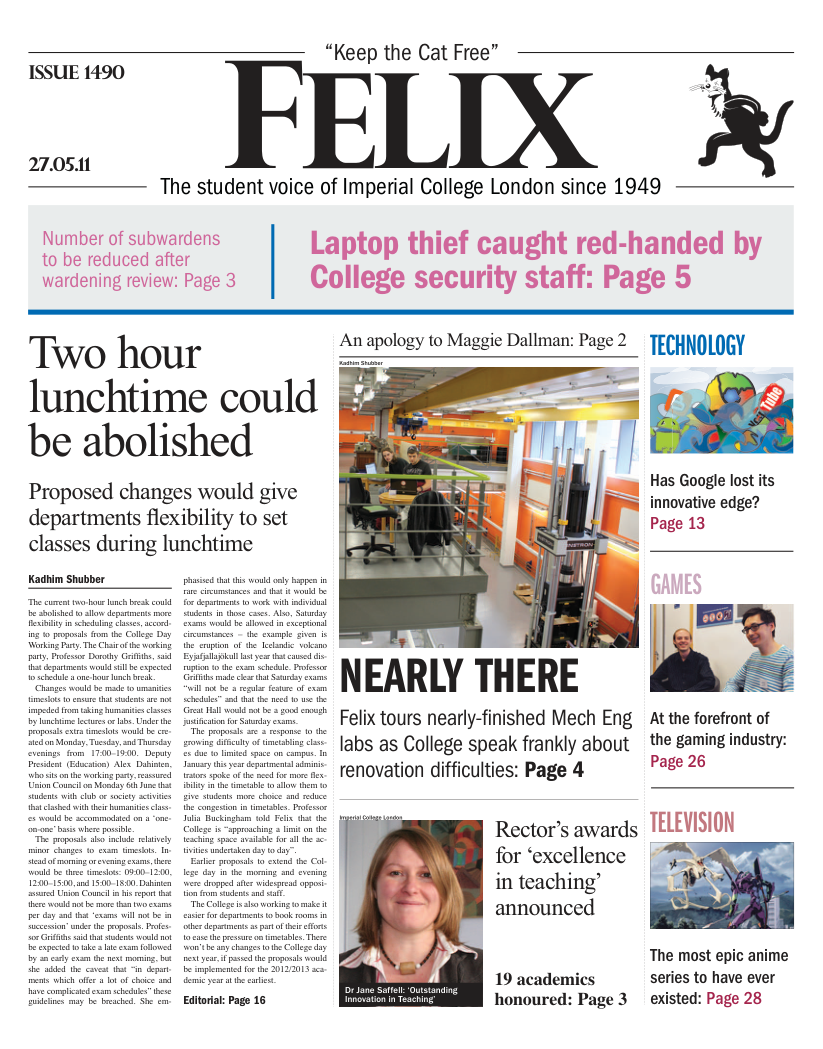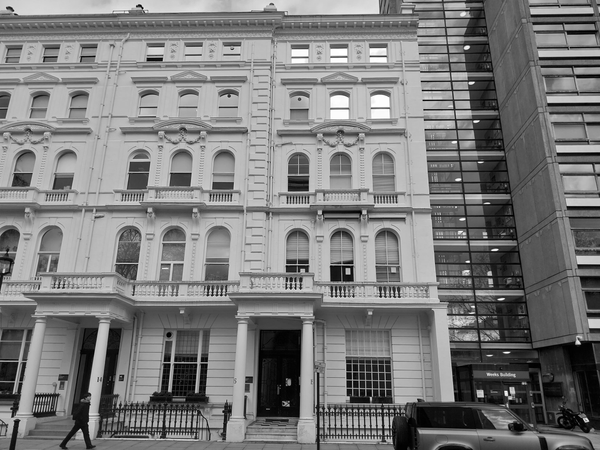Lunchtime’s over
But it's not all bad
The search for a solution to the College’s timetabling troubles continues. It is heartening to hear that the College are making efforts to make cross-departmental room bookings easier, but it is fair to say that altering the makeup of the day will be a part of the solution. The latest proposals from the College Day Working Group are a step in the right direction and are worth examining in a little detail.
The most important change is the eradication of the formal two-hour lunchbreak that we currently enjoy. Instead of this universally sectioned-off time of day, we will see different departments scheduling classes from 12–1, or from 1–2. The question to be asked is not whether this will alter College life to a lesser or greater degree, and the burden of proof is not to show that this will not have any negative impact; the question is whether this reduces the pressure on allocating teaching space enough to justify the downsides.
What are the downsides? Students from different departments and faculties may have timetables that do not allow them contact at lunchtime. Of course the more serious impact of this is that it will be more difficult for clubs and societies, and students generally, to organise meetings during the lunchbreak. Additionally some of those students taking Humanities courses will be forced to take their classes in the evening from 5-7.
On the other hand, offering more time-slots to departments will give them more options when scheduling classes. Which in turn will allow them to give students more options when choosing courses. This is undoubtedly a good thing and furthermore, if we accept the need to offer departments more flexibility, then we must recognise that this solution is far preferable to others; thankfully the idea of starting the day at 8am and ending at 7pm was abandoned.
At face value then, we believe that this proposal is not a bad idea. The others are so sensible or minor that they hardly warrant debate – allowing exams to be held on Saturday in exceptional circumstances is obviously better than having the end of your exams pushed back because the exam-period ‘weekend’ is off-limits. There is some way to go before we see any real changes (though it is getting frustrating to be constantly reminded that these are ‘only proposals’; a phrase that ignores that ‘proposals’ have a way of becoming concrete when you’re not looking). What is essential is that the detail is not overlooked. Students and staff rightly want to be assured that the proposals cover all the bases and that they will have a proper opportunity to voice their opinions. If this proves to be the case, then Felix will support the changes.






